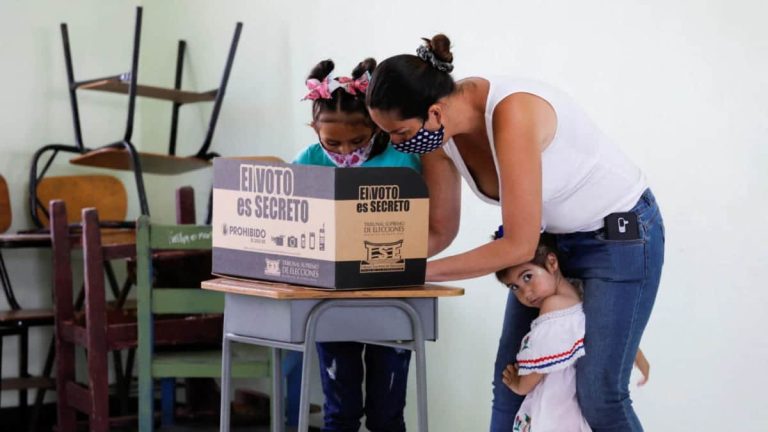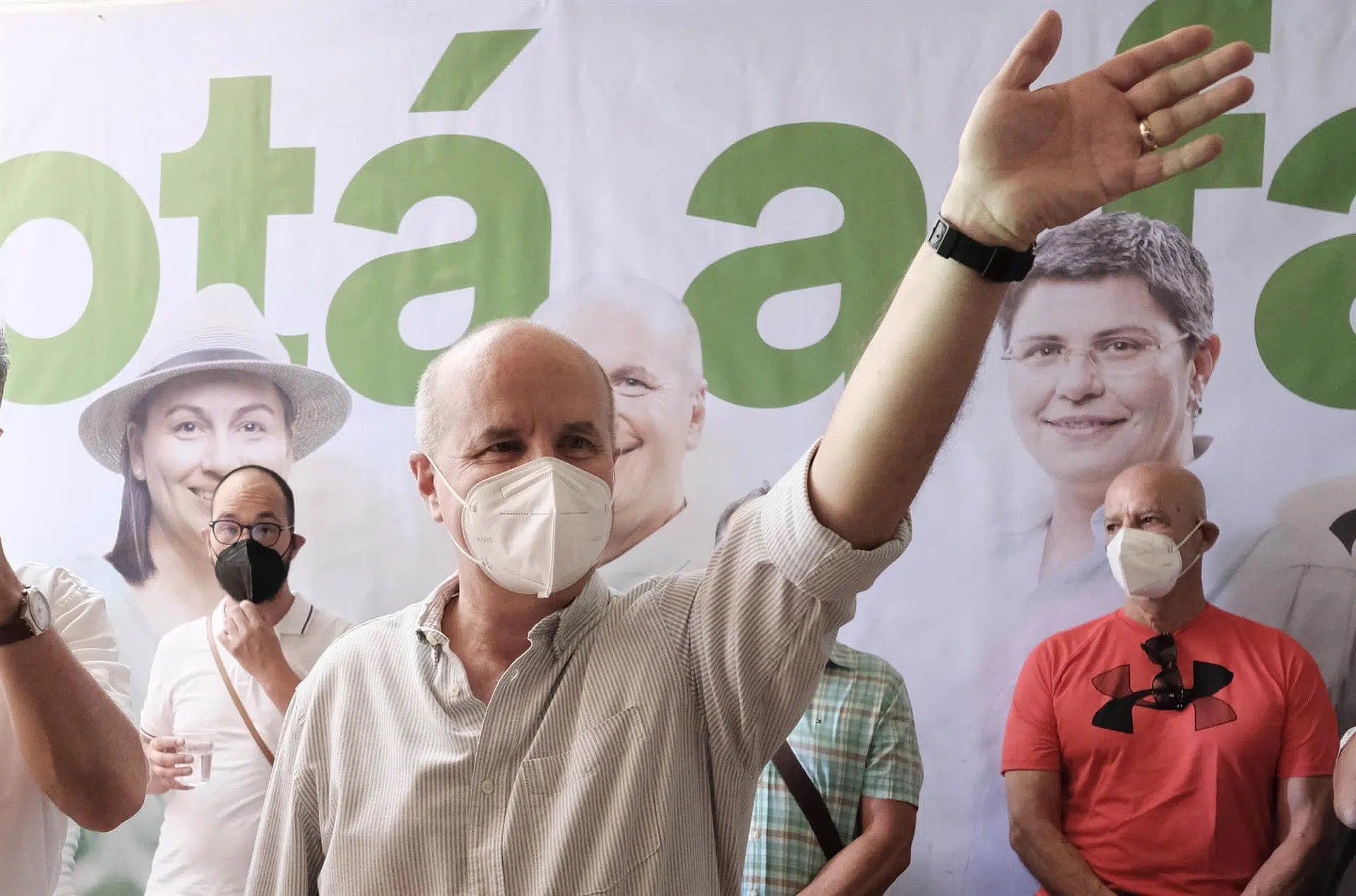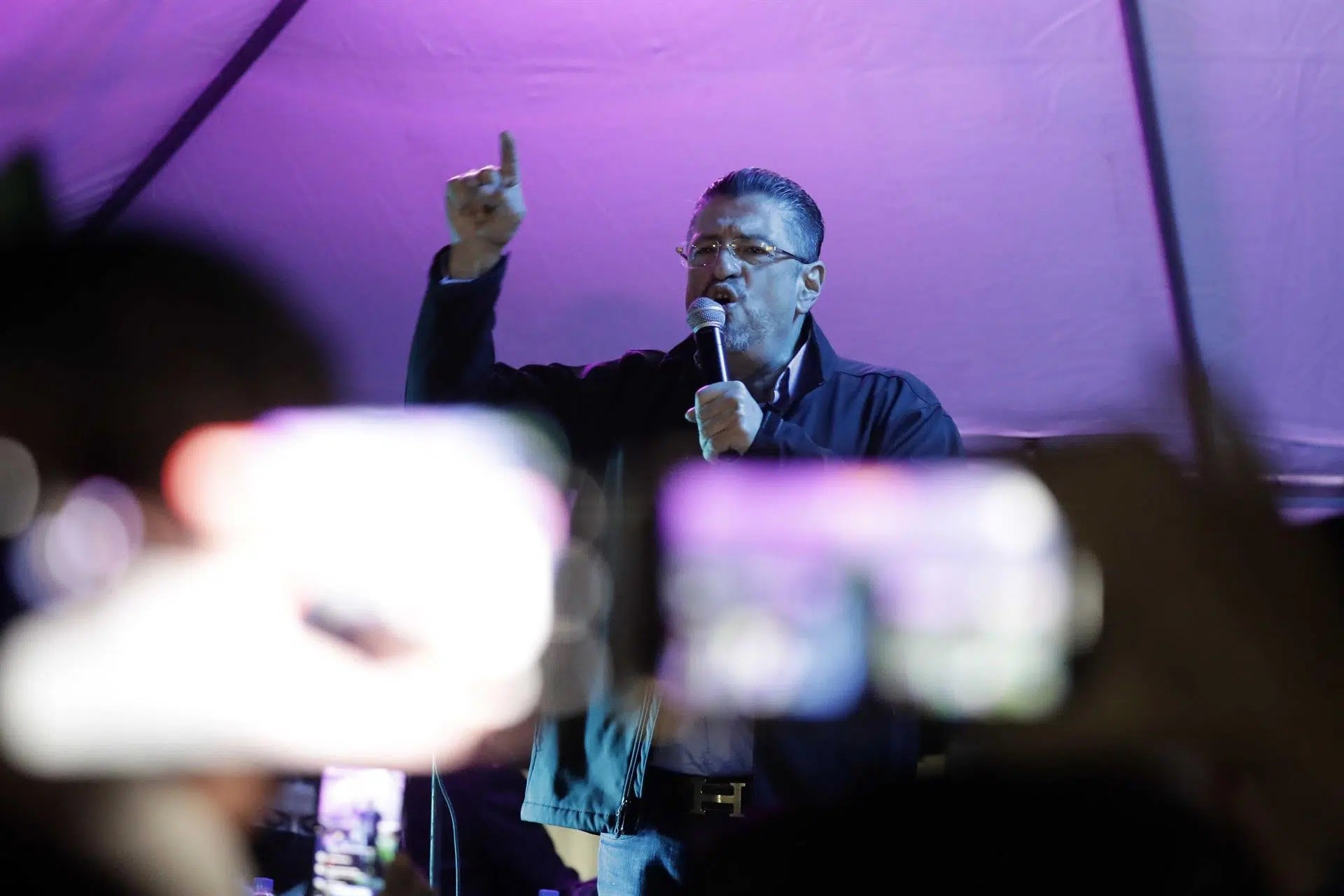1 de abril 2022

Children of Exile: The Births “Sowing Hope” in the Camp of Nicaraguan Farmers

PUBLICIDAD 1M
PUBLICIDAD 4D
PUBLICIDAD 5D
The presidential candidates accuse each other of corruption, shady handling of electoral financing and allegations of sexual harassment

Costa Rica will hold a runoff vote in presidential elections this Sunday, April 3. Former President Jose Maria Figueres, of the historic National Liberation Party (PLN), and former Minister of Finance Rodrigo Chaves, of the recently formed Social Democratic Progress Party (PPSD), will face each other. And with four days to go before the ballot, the accusations of corruption, shady handling of electoral financing and allegations of sexual harassment have taken the spotlight away from the candidates’ proposals.
Figueres, president of the country between 1994 and 1998; and economist Chaves won in the first round on February 6, in elections in which more than 40% of Costa Ricans stayed at home and in which the former president obtained 27.3% of the votes compared to the economist’s 16.7%.
The runoff comes while the last poll of the Research Center in Political Studies (CIEP) of the University of Costa Rica (UCR), carried out between March 24 to 28, shows that candidate Rodrigo Chaves is still in the lead with 41.4% of the people who intend to vote, while his rival, Jose María Figueres is 3.4 points behind with 38%.
The pollsters say the margin of error of the survey is 3.1 points.
With these figures it is difficult to predict which of the candidates will get the simple majority of votes necessary to win the presidency in the elections of this Sunday, April 3.
“There are no significant differences between the candidates, any of the two could be leading at this moment, we do not know by how much, but yes the forces are very even at this moment”, commented the coordinator of the CIEP survey, Ronald Alfaro, to Semanario Universidad.
Meanwhile, the percentage of undecided people continues to increase, going from 16.5% in last week’s survey to 18.1% this week in which 1,019 people were interviewed by telephone.
More than 3.5 million Costa Ricans are convoked to the ballot boxes this Sunday to choose the president who will govern the country between 2022 and 2026. In the electoral register there are also some 40,000 Nicaraguans with Costa Rican nationality who can participate in the elections, although in reality the presence and relevance of the Nicaraguan population in Costa Rica is much greater, with at least 350,000 Nicaraguans residing in Costa Rica.
The migration issue has been absent in the presidential debates and in the government plans there are only brief references to the subject.
On the one hand, Figueres assures in his government plan that migration must be seen “as a comprehensive issue, which includes human rights and the country’s economic recovery.” Meanwhile, Chaves said in February that he will give a “benefit” to Nicaraguan migrants to legalize their status, without specifying what this benefit would be.

The former president is the only one who makes a direct mention of the Government of Nicaragua. He assures that he will propose “mandatory, appropriate and necessary regulations in migratory and labor matters, as well as remittances abroad, like those already existing, for example, in Mercosur and in the European Union.”
Figueres proposes to provide more resources to the Directorate of Migration and Alien Affairs of Costa Rica —the entity in charge of all migration regularization procedures— and assures that he will facilitate the legalization of migrant workers in order to integrate them as tax and public health contributors and to “protect their basic labor, health and other rights.” It is a vision of a country that corresponds, he says, “without xenophobia.”
In foreign policy, Figueres proposes to maintain the defense and promotion of the democratic system and human rights, as corresponds to the Costa Rican diplomatic tradition. “I don’t want to remain indifferent to the arrests of opposition leaders by the Government of Nicaragua. Costa Rica must activate its diplomacy to defend democracy. The detained persons must be released, and guarantees must be given for a free electoral process,” he published on Twitter in June 2021, during a hunt for opponents unleashed by the Ortega regime before the November 7 elections, in which Ortega proclaimed himself the winner without competition or minimum democratic guarantees.
Chaves, although he does not include in his government plan any section on migration or foreign policy, last February answered some questions sent by Confidencial.
He assured that he will give “a benefit” to the immigration of Nicaraguans so that they can legalize their status, without specifying what this benefit would be.
Regarding his opinion on Daniel Ortega and Rosario Murillo, he regretted that the Nicaraguan people cannot elect their rulers in a democracy, without manipulation.
If he becomes president, Chaves assured that he will seek “an attitude of respect with the people of Nicaragua, even though we recognize that the regime ruling them was not democratically elected.” In addition, he assures that he will maintain Costa Rica’s support in international forum for Nicaragua’s return to democracy.
Also, the current president of Costa Rica, Carlos Alvarado, acknowledged this week —in an interview to EFE news agency— that his country and Nicaragua only maintain state relations, because “there are differences in the basic conceptions of what a democratic country should be.”
“Certainly, in Nicaragua there is a deterioration of democracy, it does not live in it. And the international community must support and sponsor that the Nicaraguans themselves reach a solution so that the democratic path could be resumed, but the risk is in the entire region,” said Alvarado.
However, the Costa Rican president considered that minimum consensus must be reached on issues such as climate change or financing for development: “it affects all of us regardless of the politics. If we reach a minimum consensus, we can move forward with a regional voice that I believe has been absent,” he added.
As for relations with other neighboring countries, Alvarado stressed the good relations that Costa Rica maintains with Panama and the Dominican Republic, countries with which his country has formed an alliance for development in democracy, “a mechanism between like-minded countries that believe in sustainable and economic development,” he continued.
After the conclusion of the first round on February 6, Figueres and Chaves have exchanged allegations and accusations, so that both candidates have had to put out fires due to controversies about the financing of their campaigns.

Chaves has had to explain the origin and operation of a trust of some 135,000 dollars that he operated between February and September 2021 and that, according to local media publications, was used for the payment of political campaign expenditures, which would be illegal.
The Supreme Electoral Tribunal is investigating the matter, while Chaves, of the Social Democratic Progress Party, described the press reports as a “smoke screen” about the trust and the possibility of a parallel financing structure.
On his part, Figueres, of the National Liberation Party, had to give explanations for a trip he made to the Dominican Republic at the beginning of March, where he met with the president of that country, Luis Abinader, other government officials and businesspeople.
The candidate explained that the expenses for his stay in the Dominican Republic were paid by him and that the trip in a private plane was a donation in kind of the campaign by businessman Alberto Esquivel Volio.
The last controversy that has arisen in the campaign was caused by a series of videos against Chaves. One hints at pedophile allegations and another shows people throwing themselves off a building alluding to a Figueres’ frequent phrase that voting for Chaves is “a leap into the void.”
Local and US media also reported during this political campaign the sexual harassment complaints filed against Chaves by female workers of the World Bank, when he was an official of that entity in the United States.
The past of former president Figueres has also been a topic of the campaign, because in 2004, the Prosecutor’s Office investigated a consultancy provided by the French company Alcatel, which obtained public telecommunication contracts in Costa Rica.
This article was originally published in Spanish in Confidencial and translated by Havana Times
PUBLICIDAD 3M
Confidencial es un diario digital nicaragüense, de formato multimedia, fundado por Carlos F. Chamorro en junio de 1996. Inició como un semanario impreso y hoy es un medio de referencia regional con información, análisis, entrevistas, perfiles, reportajes e investigaciones sobre Nicaragua, informando desde el exilio por la persecución política de la dictadura de Daniel Ortega y Rosario Murillo.
PUBLICIDAD 3D